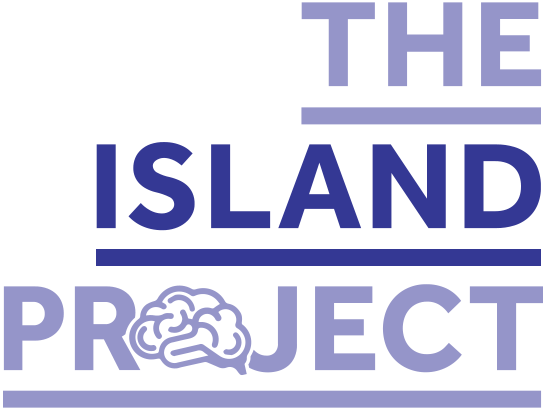A GP referral is required before you can book an appointment at The ISLAND Clinic.
Background
The ISLAND Clinic is an interdisciplinary clinic developed by the Wicking Dementia Research and Education Centre. It is situated at the clinic rooms in the Medical Sciences Building, 17 Liverpool Street, Hobart, Tasmania.
The Australian Dementia Network (ADNeT) has developed a national clinical quality registry, cognitive clinics and clinical trials network. The ISLAND Clinic is part of this nationwide memory clinic group.
The goal of the clinic is to provide early assessment and diagnosis of cognitive changes and develop a management plan for the client/carer and General Practitioner (GP). The benefits of early diagnosis include planning, access to support services, advice re driving, instigating disease modifying activities and access to disease modifying medications.
The clinic functions as a research clinic. Clients will have the opportunity to participate in research, both current and future, and have the right to decline/withdraw research participation at any stage of the process with no compromise to their clinical care. Capacity to consent to participate in research will be determined at the initial visit.
The Interdisciplinary team (IDT) consists of Geriatricians, Neurologist, Nurse, Neuropsychologist, Psychologists, Dementia Australia support and volunteers.
The clinic can provide:
- Expert clinical assessment and diagnosis in an interdisciplinary clinic.
- Up to date information and consideration of initiation of treatment.
- Linkage to support groups and service providers, education, and information.
- Linkage to research participation possibilities, including clinical trials.
- Assistance with future planning.
Who to refer:
- People who have noted or are suspected of having cognitive decline or behavioral changes that may be secondary to dementia.
- Rapidly progressive cognitive decline.
- Possible Frontotemporal dementia.
- Cognitive decline that is associated with movement disorders such as Lewy Body dementia, Parkinson's disease, supranuclear palsy.
- Early onset cognitive decline: <65 years old.
- Previous ISLAND Clinic clients who may have received a diagnosis of Mild Cognitive Impairment or when the diagnosis was unclear.
Who not to refer:
- Clients who already have a diagnosis and/or have accessed treatment
- Acute behavioral disturbances
- Significant substance abuse
- Crisis from the carer's perspective
How to Refer:
Send the referral via Health Link (utasisla), or fax 03 6226 4385 . Referral templates for Best Practice and Medical Director are available via: https://www.primaryhealthtas.com.au/templates/the-island-clinic/.
Please note that the referral is comprehensive and requires the GP to complete information on pathology testing within the last 6 months, imaging, history, baseline examination, up to date medication profile and relevant communications (e.g. ACAT assessment). It may require more than one appointment in general practice to complete the referral.
A clinic appointment time will be arranged and a referral will be sent for an MRI brain/CT brain scan appointment (prior to the clinic appointment). Notification of these two appointments will be sent to both the client and referrer upon triaging of the referral. Some further pre-clinic assessments and information will be sent to the client at this point and if necessary further information may be requested from the referrer.
What to expect:
A “Welcome pack” will be sent to the client/carer which will include information pertaining to the appointment.
The pack will also include some screening tests to be filled out prior to and brought along to the appointment. Included will be information pertaining to the Wicking Dementia Research and Education Centre and research participation options.
- The client will have an MRI brain scan (or CT head scan) a few days (or weeks) before attending the ISLAND clinic.
- A clinic appointment at the Medical Science Precinct 1, 17 Liverpool Street, Hobart. This is expected to take nearly a full day. Clients are strongly encouraged to bring along a carer/support person.
- An interdisciplinary meeting at which the client's assessment and MRI scan/pathology results will be discussed by the team and a diagnosis agreed upon on the day, if possible.
- A second meeting that day with the client and carer/responsible person to advise of and discuss the diagnosis.
- Information and linkage with support services can be commenced on this day as needed.
- If the diagnosis is not able to be made on the day of the clinic visit, then the client and carer/responsible person will be advised re further appointments.
- Further follow up appointments as necessary.
- A comprehensive letter detailing diagnosis / supports and management will be sent to the client/ carer and the GP within 2-4 weeks of the initial clinic appointment in most cases.
Throughout the process the referring General Practitioner will remain informed.
The ISLAND Project
The Island Study Linking Ageing and Neurodegenerative Disease (ISLAND) Project will involve a range of studies that relate to understanding who is at most risk of dementia and how we can self-manage risk behaviours to build resilience to dementia.
The Wicking Dementia Centre is establishing a bold new initiative that has never been attempted before. We are seeking to reduce the incidence of dementia in a whole population - the population of Tasmania - and we need your help. If we can show that we can reduce risk behaviours in our State, then we can encourage the world to take on dementia risk reduction.




